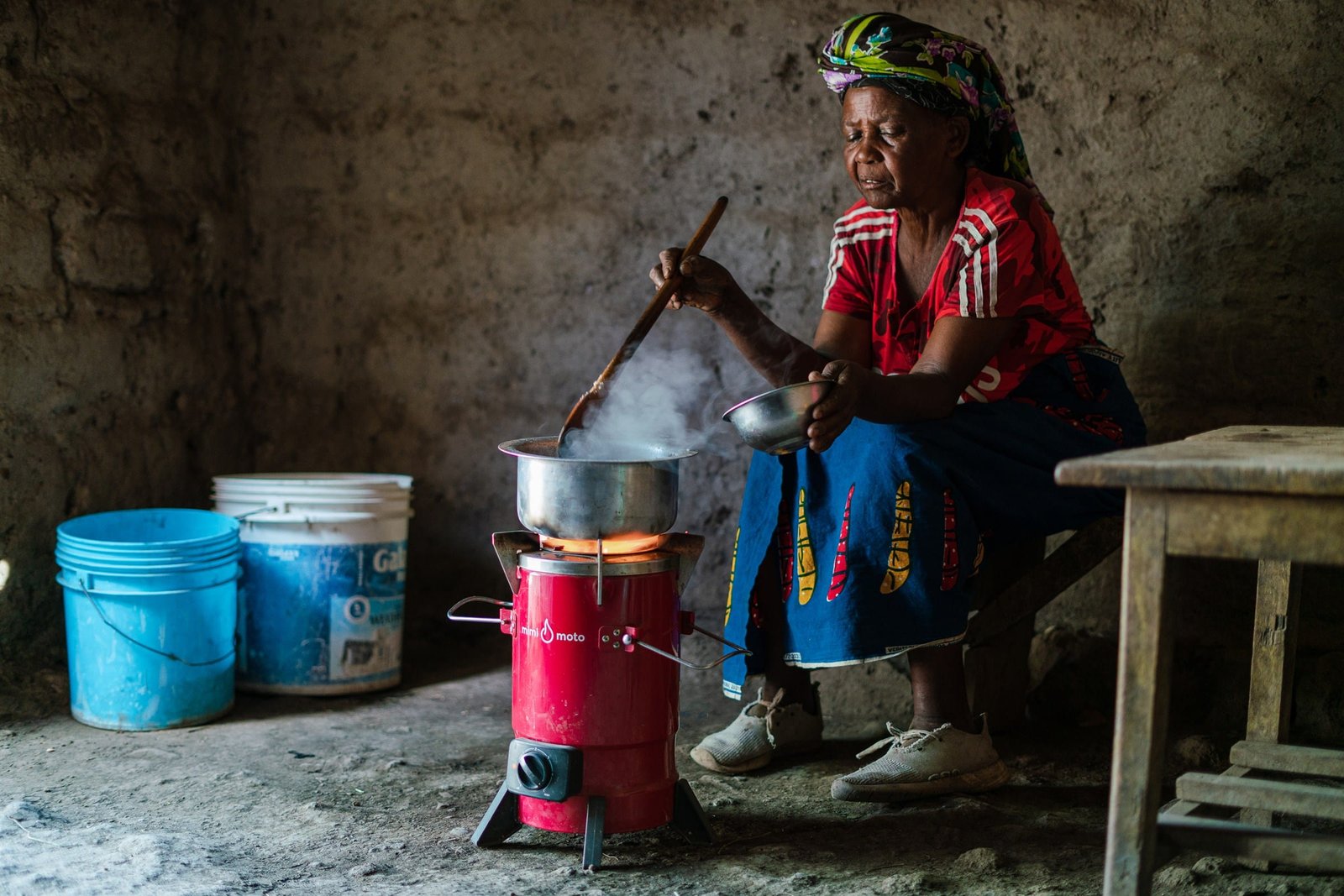In the peaceful, forest-fringed village of Mlesa, located in Muheza District of Tanga Region, northeastern Tanzania, a quiet but powerful revolution is taking place — one that’s helping both people and nature thrive.
Over 700 households and small businesses in the area have switched from traditional open-fire cooking methods to energy-efficient cookstoves, as part of a local initiative aimed at reducing environmental degradation and improving public health.
For generations, many families in rural Tanzania have relied on the three-stone fire — a basic setup where wood is burned between three rocks. While simple, it’s highly inefficient, using large amounts of firewood and producing thick smoke that contributes to dangerous indoor air pollution.
That’s why the arrival of improved cookstoves in Mlesa is being met with so much enthusiasm.
“A big difference in my life”
Sophia Khatibu, a local food vendor, shared how much the stove has changed her daily routine. “Before, I used lots of wood and spent hours collecting it,” she said. “Now I just need a few pieces to cook an entire meal. This saves me time and money.” She pointed to two logs — one large, one small — resting beside her stove.
She also mentioned a significant improvement in indoor air quality. “These new stoves don’t produce much smoke,” she said. “Before, the smoke would fill the kitchen and make our eyes and chest hurt. Now it’s much better for my children.”
The stoves are especially vital for protecting the nearby Amani Nature Forest Reserve, part of the globally important Eastern Arc Mountains. This ancient rainforest, rich in endemic species, faces growing threats from illegal logging and unsustainable harvesting of firewood.
Also Read; Burkina Faso Junta Axes Election Commission Amid Controversy
With less wood being used, fewer trees are being cut, helping to slow down deforestation and soil degradation in the reserve and surrounding areas. The Eastern Arc is considered one of the world’s most critical biodiversity hotspots, home to rare birds, amphibians, and medicinal plants.
The stoves were made locally by a community group led by Monika Joseph, who proudly shared that her team has produced 703 units so far. “People are seeing the results — faster cooking, less smoke, fewer trips to the forest,” she said. “And we’re creating jobs right here in our own village.”
The project is part of a broader effort to link sustainable development with environmental conservation. Other activities in the region include promoting spice farming, beekeeping, and tree planting — all aimed at giving residents viable alternatives to cutting down forests for income.
Though still expanding, the project has already made a measurable impact. Families are healthier, forests are safer, and women — who bear most of the burden of fuel collection and cooking — have more time and freedom. These cookstoves may be small, but the difference they’re making is anything but.







